
Wadi Musa: The Gateway to Petra's Ancient Marvels
Wadi Musa, meaning 'Valley of Moses,' is the charming town that serves as the gateway to one of the world's most breathtaking archaeological sites, Petra. Steeped in history and surrounded by stunning desert landscapes, Wadi Musa offers an unforgettable experience for all who visit. This bustling town is not just a mere stopover; it is a destination rich in culture, hospitality, and natural beauty. Visitors to Wadi Musa can immerse themselves in the local culture by exploring its vibrant markets, where traditional crafts and spices fill the air with delightful scents. The town boasts a variety of accommodations, ranging from budget-friendly hostels to luxurious resorts, ensuring that every traveler finds a perfect place to rest after a day of exploration. Wadi Musa's culinary scene is equally diverse, offering everything from local Jordanian dishes to international cuisine, catering to all tastes. One of the highlights of staying in Wadi Musa is the easy access it provides to Petra. Just a short walk or ride away, visitors can embark on their journey through the stunning Siq, leading to the iconic Treasury and beyond. After a long day of exploring Petra, travelers can unwind in one of Wadi Musa's many cafes or indulge in a traditional Hammam experience. The town's warm and welcoming atmosphere, combined with its close proximity to Petra, makes Wadi Musa an essential part of any Jordanian adventure.
Local tips in Wadi Musa
- Visit Petra early in the morning or late afternoon to avoid the crowds and enjoy cooler temperatures.
- Carry cash, as many local shops and eateries do not accept credit cards.
- Wear comfortable walking shoes and bring a hat and sunscreen for protection against the sun.
- Try the local dish 'Mansaf,' a traditional Jordanian meal made with lamb, yogurt sauce, and rice.
- Consider hiring a local guide for a more informative and enriching experience of Petra.
Wadi Musa: The Gateway to Petra's Ancient Marvels
Wadi Musa, meaning 'Valley of Moses,' is the charming town that serves as the gateway to one of the world's most breathtaking archaeological sites, Petra. Steeped in history and surrounded by stunning desert landscapes, Wadi Musa offers an unforgettable experience for all who visit. This bustling town is not just a mere stopover; it is a destination rich in culture, hospitality, and natural beauty. Visitors to Wadi Musa can immerse themselves in the local culture by exploring its vibrant markets, where traditional crafts and spices fill the air with delightful scents. The town boasts a variety of accommodations, ranging from budget-friendly hostels to luxurious resorts, ensuring that every traveler finds a perfect place to rest after a day of exploration. Wadi Musa's culinary scene is equally diverse, offering everything from local Jordanian dishes to international cuisine, catering to all tastes. One of the highlights of staying in Wadi Musa is the easy access it provides to Petra. Just a short walk or ride away, visitors can embark on their journey through the stunning Siq, leading to the iconic Treasury and beyond. After a long day of exploring Petra, travelers can unwind in one of Wadi Musa's many cafes or indulge in a traditional Hammam experience. The town's warm and welcoming atmosphere, combined with its close proximity to Petra, makes Wadi Musa an essential part of any Jordanian adventure.
Iconic landmarks you can’t miss
Petra
Explore Petra, the ancient rock-cut city of Jordan, a UNESCO World Heritage Site and one of the New Seven Wonders of the World, rich in history and breathtaking views.
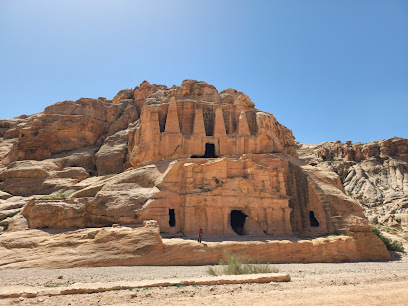
Petra Visitor Center
Explore the gateway to Petra, where ancient history meets modern convenience at the Petra Visitor Center in Wadi Musa.
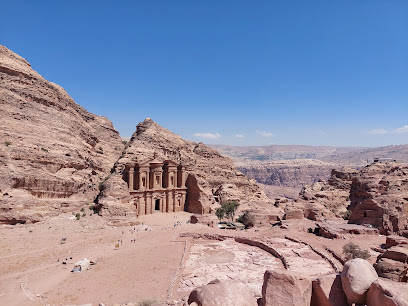
The Treasury
Discover the awe of The Treasury, an architectural gem carved from rose-red rock, nestled in the heart of Petra, Jordan's ancient wonder.
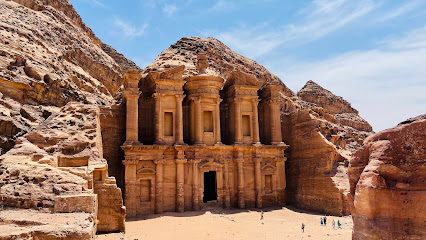
Triclinium
Unveil the secrets of the Triclinium in Little Petra, a stunning historical landmark that showcases the artistry of the ancient Nabateans.
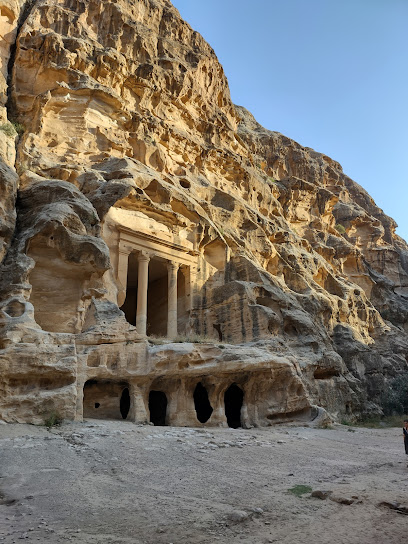
Al-Siq
Experience the enchanting Al-Siq, the stunning gateway to Petra, where nature and history converge in breathtaking harmony.
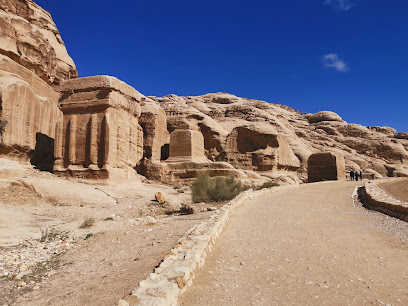
Mousa's Spring
Explore Mousa's Spring in Wadi Musa - a historic oasis blending natural beauty and rich cultural heritage, perfect for a serene getaway.
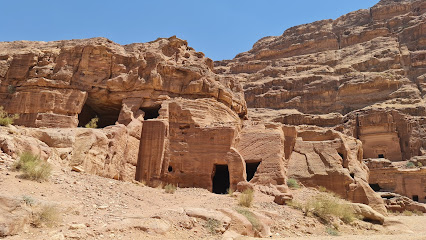
Petra Museum
Uncover the ancient secrets of Petra at the Petra Museum, where history and culture come alive in a stunning setting.
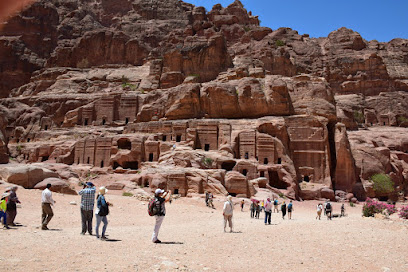
Nabatean Theatre
Discover the Nabatean Theatre in Wadi Musa, a historical gem showcasing ancient architecture and culture amidst stunning landscapes.
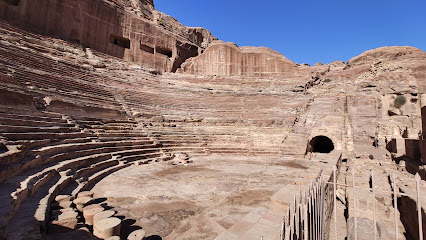
Great Temple
Discover the Great Temple of Petra, an archaeological wonder that showcases the incredible artistry and history of the Nabatean civilization in Jordan.
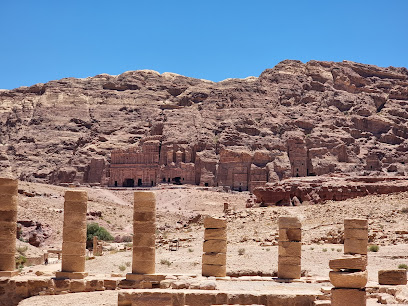
Obelisk Tomb & Bab as-Siq Triclinium.
Discover the breathtaking Obelisk Tomb & Bab as-Siq Triclinium, historical gems of Petra offering rich architectural heritage and stunning views.
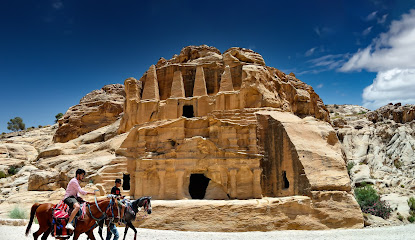
I Love Petra Sign
Capture your love for Petra at the iconic 'I Love Petra' sign, a vibrant landmark offering breathtaking views and unforgettable photo opportunities.
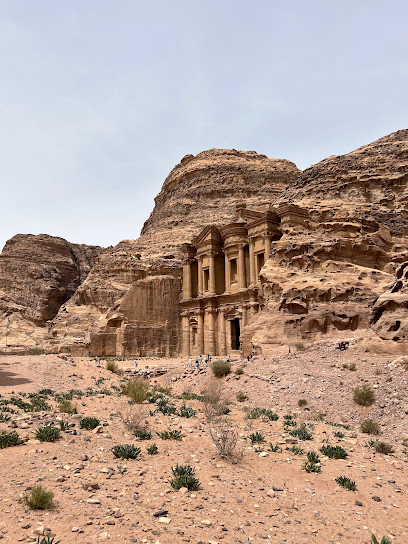
Royal Tombs
Discover the Royal Tombs in Wadi Musa, a historical landmark showcasing the grandeur of Nabatean architecture amidst breathtaking landscapes.
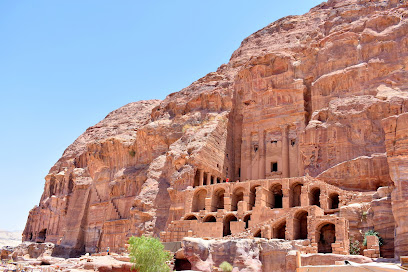
Djinn Blocks
Discover the enchanting Djinn Blocks in Wadi Musa, a historical landmark that unveils the artistry of the Nabateans amidst stunning desert landscapes.
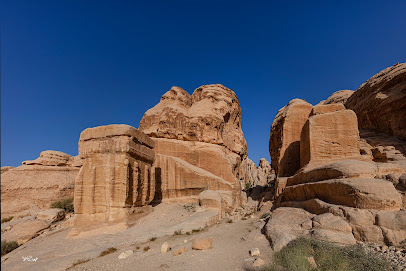
Tomb of 'Unayshu
Explore the Tomb of 'Unayshu, an exquisite historical landmark in Wadi Musa, rich in Nabatean culture and architectural marvels.
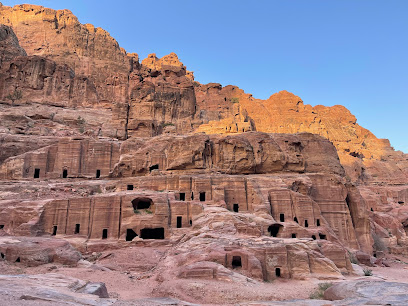
Renaissance Tomb
Discover the Renaissance Tomb in Petra – a historical marvel showcasing ancient Nabatean artistry amidst breathtaking landscapes.
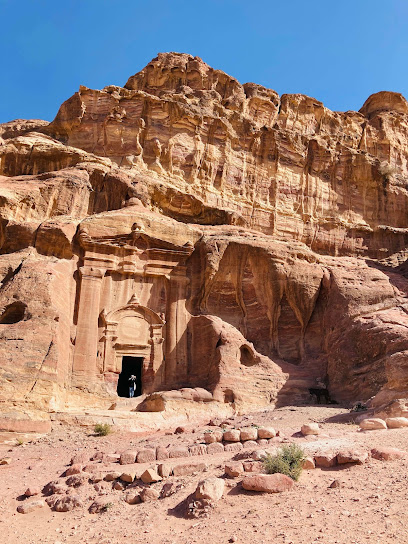
Essential places to dine
Al Wadi Restaurant
Experience the best of Jordanian cuisine at Al Wadi Restaurant in Wadi Musa—where tradition meets taste in a stunning setting.
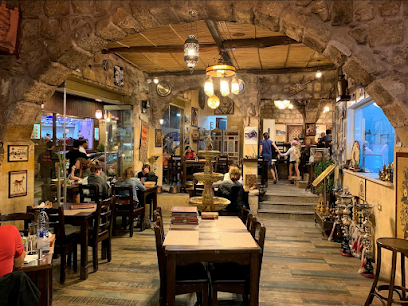
My Mom's Recipe Restaurant
Experience authentic Jordanian cuisine at My Mom's Recipe Restaurant in Wadi Musa - where every dish tells a story.
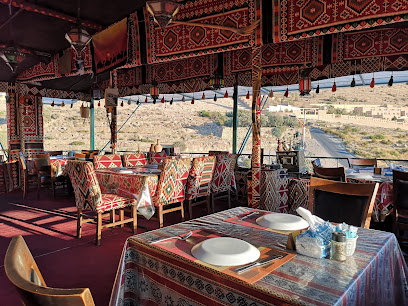
Reem Beladi Restaurant
Experience authentic Jordanian cuisine at Reem Beladi Restaurant in Wadi Musa - a must-visit for every traveler exploring Petra.
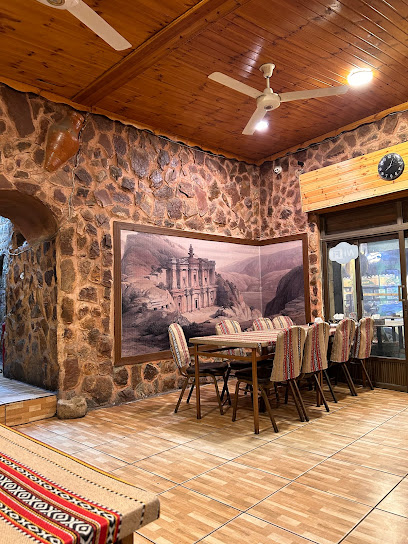
Time Out
Discover authentic flavors at Time Out Cafe and Restaurant in Wadi Musa - your perfect culinary stop before or after exploring Petra's ancient wonders.
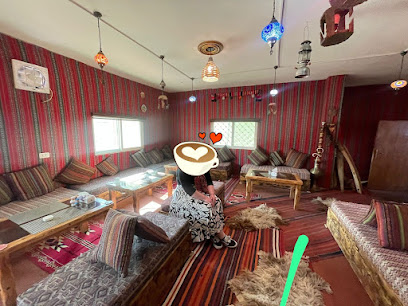
Rainbow Restaurant
Discover delicious dining at Rainbow Restaurant in Wadi Musa - where local flavors meet fast food favorites in a welcoming atmosphere.
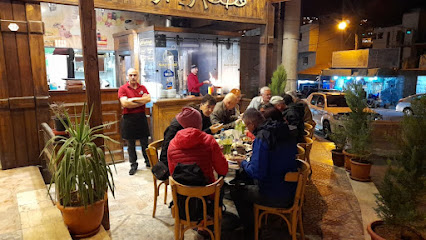
Red Cave Restaurant
Experience authentic Jordanian flavors at Red Cave Restaurant in Wadi Musa - where every meal tells a story.
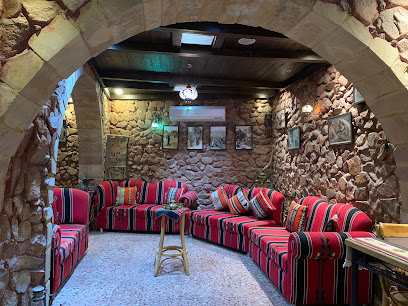
Sandstone
Experience authentic Jordanian cuisine at Sandstone in Wadi Musa—where every meal tells a story.
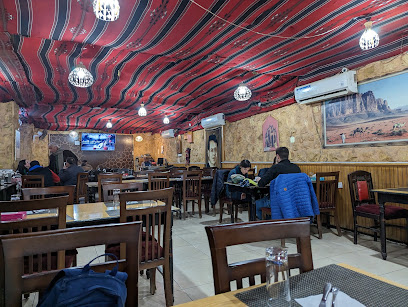
La plazza pizza
Experience delightful pizzas in Wadi Musa at La Plazza Pizza - where authentic flavors meet warm hospitality.
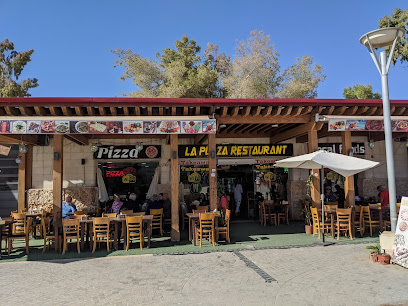
The Aloe Vera Restaurant
Experience authentic Jordanian cuisine and warm hospitality at The Aloe Vera Restaurant in Wadi Musa, your gateway to Petra's culinary treasures.
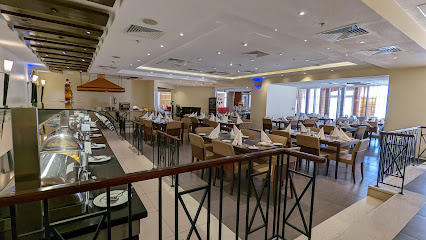
rendezvous restaurant petra
Discover authentic Asian flavors at Rendezvous Restaurant Petra, where every dish tells a story amidst the stunning backdrop of Wadi Musa.

Markets, malls and hidden boutiques
Supermarket Normal price
Experience the vibrant shopping scene in Wadi Musa with a visit to the local supermarket, offering fresh produce, antiques, and unique souvenirs.
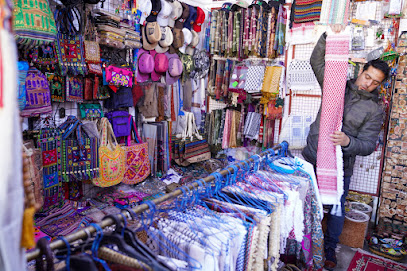
Alla Aldeen mall - Supermarket
Discover local flavors and essentials at Alla Aldeen Mall, Wadi Musa's go-to supermarket for tourists and locals alike.
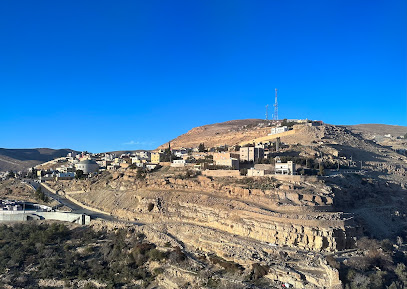
Petra Basket Store - سلة البتراء ستور
Explore Petra Basket Store for a unique shopping experience with American grocery items and local crafts, just steps from the majestic Petra site.
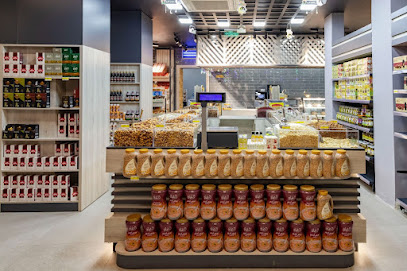
Town Bazaar
Shop unique Jordanian handicrafts at Town Bazaar in Wadi Musa, a treasure trove of local culture and artistry for every traveler.
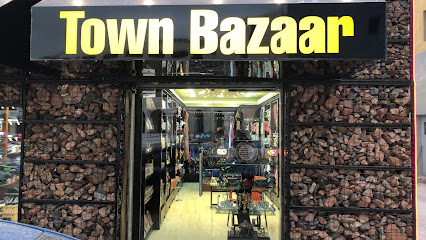
Downtown- Wadi Mousa
Explore the lively Downtown Wadi Mousa for shopping and dining amidst the breathtaking beauty of Jordan's historic landscapes.
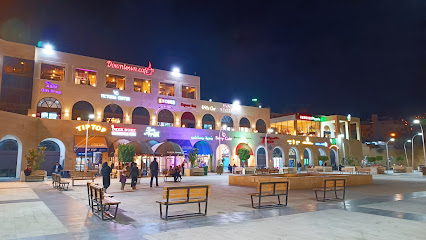
Old Village Gift Shop
Discover authentic Jordanian craftsmanship at the Old Village Gift Shop in Wadi Musa, your gateway to unique souvenirs and cultural treasures.

Petra Rosemary Shop & Frankincense
Discover unique gifts and aromatic treasures at Petra Rosemary Shop & Frankincense, a must-visit destination for tourists in Petra, Jordan.
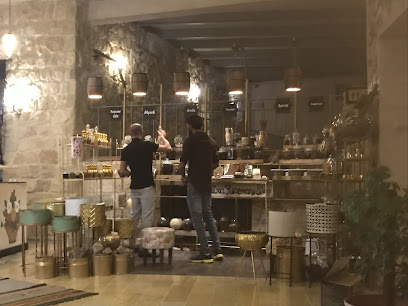
The Sand Castle Souvenir&Bazaar
Explore authentic Jordanian souvenirs at The Sand Castle Souvenir & Bazaar in Wadi Musa, the perfect stop for unique treasures and local craftsmanship.
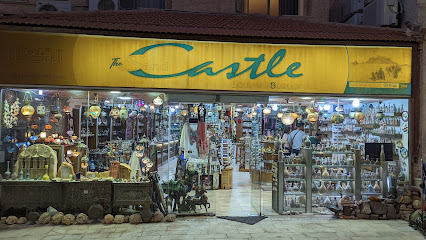
Married to a Bedouin Umm Raami's shop
Explore the heart of Wadi Musa with Umm Raami's handcrafted jewelry, where tradition meets artistry in every exquisite piece.
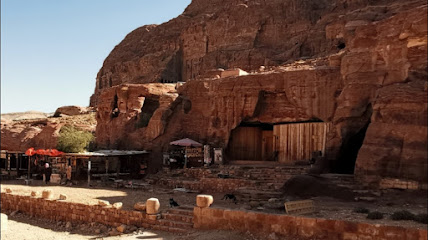
Nabataean Ladies Cooperative
Experience the artistry of silversmithing at the Nabataean Ladies Cooperative in Wadi Musa, where cultural heritage comes to life through exquisite handmade silver jewelry.
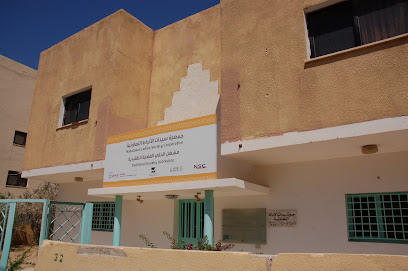
Essential bars & hidden hideouts
My Mom's Recipe Restaurant
Experience authentic Jordanian cuisine at My Mom's Recipe Restaurant in Petra, where every dish tells a story of tradition and flavor.
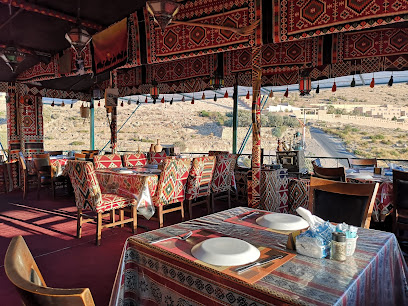
Time Out
Discover the authentic flavors of Jordan at Time Out Café and Restaurant in Wadi Musa, where every meal is a memorable experience.
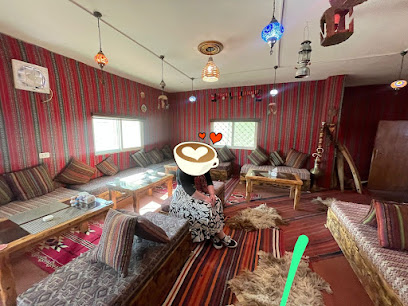
The Cave Bar
Experience the allure of The Cave Bar in Wadi Musa, where unique ambiance meets an extensive drink selection amidst ancient wonders.
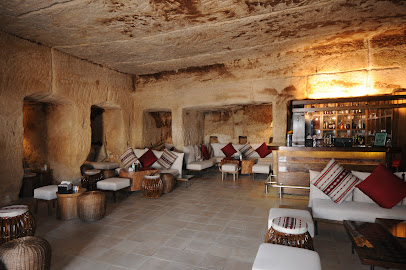
Petra Night Restaurant
Experience authentic Jordanian cuisine and exceptional coffee at Petra Night Restaurant, a perfect retreat after exploring the wonders of Petra.
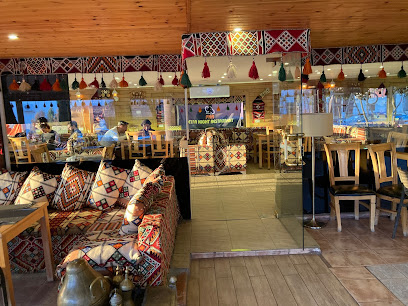
Red Cave Restaurant
Experience authentic Jordanian cuisine at Red Cave Restaurant, the perfect dining destination near Petra for a satisfying meal.
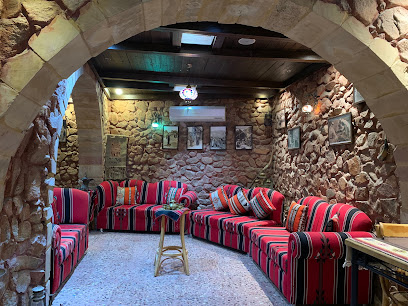
Kilkenny Bar
Experience the charm of Irish hospitality at Kilkenny Bar, a cozy retreat in Wadi Musa with a great selection of drinks and a warm atmosphere.
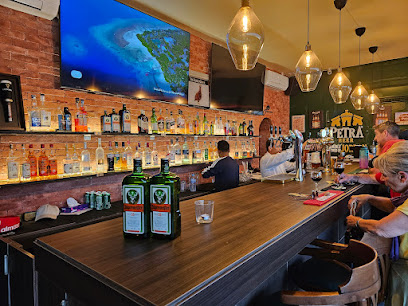
White Bird cafe
Discover the unique flavors and relaxing atmosphere at White Bird Cafe, a charming hookah bar in the heart of Petra, Jordan.
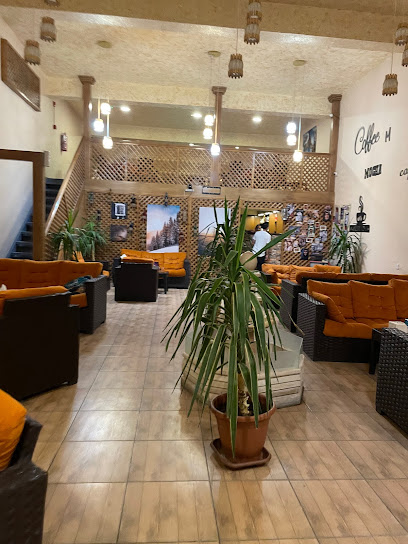
Al Maqa'ad Bar
Discover Al Maqa'ad Bar in Wadi Musa, your ideal retreat after exploring Petra with stunning views and a variety of refreshing drinks.
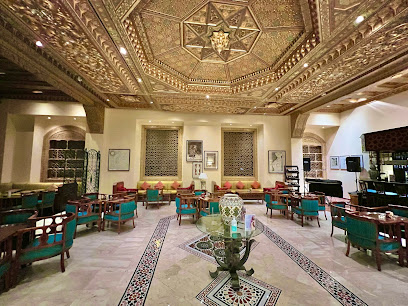
Al Multaqa Lobby Lounge
Discover relaxation at Al Multaqa Lobby Lounge in Wadi Musa, where exquisite flavors and serene ambiance meet the spirit of Petra.
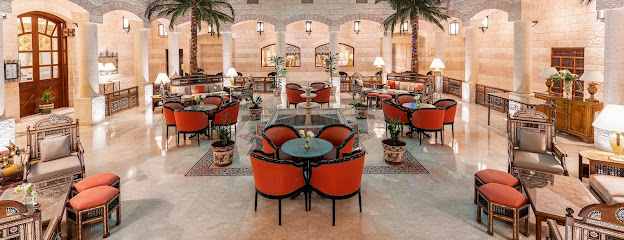
Al Nadeem Bar & Terrace
Discover relaxation at Al Nadeem Bar & Terrace, where breathtaking views and delightful drinks await in the heart of Wadi Musa.
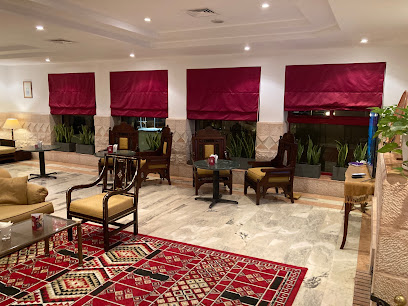
Local Phrases
-
- Helloمرحبا
[marhaban] - Goodbyeوداعا
[wadaeana] - Yesنعم
[naam] - Noلا
[laa] - Please/You're welcomeمن فضلك/على الرحب والسعة
[min fadlik/ala arrahb wasiata] - Thank youشكرا
[shukran] - Excuse me/Sorryعذرا
[azraan] - How are you?كيف حالك؟
[kayfa haluk?] - Fine. And you?بخير. وأنت؟
[bikhair. wa ant?] - Do you speak English?هل تتحدث الإنجليزية؟
[hal tatahadath al-inglizia?] - I don't understandلا أفهم
[la afham]
- Helloمرحبا
-
- I'd like to see the menu, pleaseأريد رؤية القائمة، من فضلك
[urid ru'ya alqaima, min fadlik] - I don't eat meatأنا لا آكل اللحوم
[ana la akol allahum] - Cheers!في صحتك!
[fi sahtak!] - I would like to pay, pleaseأود أن أدفع، من فضلك
[awad an adfae, min fadlik]
- I'd like to see the menu, pleaseأريد رؤية القائمة، من فضلك
-
- Help!النجدة!
[al-najda!] - Go away!انصرف!
[ansarf!] - Call the Police!اتصل بالشرطة!
[iatisil bilshurta!] - Call a doctor!اتصل بطبيب!
[iatisil batabib!] - I'm lostأنا ضائع
[ana daa'i] - I'm illأنا مريض
[ana mareed]
- Help!النجدة!
-
- I'd like to buy...أريد شراء...
[urid shira...] - I'm just lookingأنا فقط أتطلع
[ana faqat atatala] - How much is it?كم سعره؟
[kam siro?] - That's too expensiveهذا غالي جدا
[hatha ghali jiddan] - Can you lower the price?هل يمكنك خفض السعر؟
[hal yumkinuk kafdal as-siro?]
- I'd like to buy...أريد شراء...
-
- What time is it?كم الساعة؟
[kam as-saa'a?] - It's one o'clockالساعة الواحدة
[as-saa'a al-wahida] - Half past (10)الساعة العاشرة والنصف
[as-saa'a al-ashira walnusf] - Morningالصباح
[as-sabah] - Afternoonالظهر
[adh-dhuhur] - Eveningالمساء
[al-masaa] - Yesterdayالبارحة
[al-bariha] - Todayاليوم
[al-yawm] - Tomorrowغدا
[ghadan] - 1واحد
[wahid] - 2اثنان
[ithnan] - 3ثلاثة
[thalatha] - 4أربعة
[arba'a] - 5خمسة
[khamsa] - 6ستة
[sitta] - 7سبعة
[sab'a] - 8ثمانية
[thamania] - 9تسعة
[tasia] - 10عشرة
[ashara]
- What time is it?كم الساعة؟
-
- Where's a/the...?أين...
[ayna...] - What's the address?ما هو العنوان؟
[ma huwa al-onaan?] - Can you show me (on the map)?هل يمكنك أن تريني (على الخريطة)؟
[hal yumkinuk an tarini (ala al-kharita)?] - When's the next (bus)?متى يأتي الحافلة التالية؟
[mata yati al-hafilat al-taliya?] - A ticket (to ....)تذكرة (إلى...)
[tazkira (ila...)]
- Where's a/the...?أين...
History of Wadi Musa
-
Wadi Musa, the gateway to Petra, holds deep connections to the Nabateans, an ancient Arab people who established Petra as their capital around the 4th century BCE. The Nabateans were skilled traders and engineers, expertly managing water resources and constructing elaborate structures carved into the rose-red cliffs. Wadi Musa served as a vital support area for Petra's thriving trade routes connecting the Arabian Peninsula with the Mediterranean.
-
As Petra came under Roman control in 106 CE, Wadi Musa began to see increased development and integration into the Roman Empire. The region benefited from Roman infrastructure, including roads and public buildings, facilitating trade and transport. This period marked the transition of Wadi Musa from a mere supporting community to a locale of increased economic and cultural activity.
-
With the advent of Islam in the 7th century, Wadi Musa and the surrounding area saw significant cultural changes. The region became part of the Islamic Caliphate, and the Nabatean legacy blended with Islamic traditions. The importance of Petra diminished, but Wadi Musa remained inhabited, evolving into a small settlement that provided services to travelers and pilgrims visiting the ancient site.
-
In the 19th century, Petra was rediscovered by Western explorers, notably Johann Ludwig Burckhardt in 1812. This event sparked interest in the site and led to the gradual development of Wadi Musa as a base for tourists. The area began to modernize, with the establishment of guesthouses and facilities catering to the increasing number of visitors drawn by Petra's historical significance and architectural marvels.
-
Today, Wadi Musa continues to grow as a tourism hub, serving as a crucial link between visitors and the ancient city of Petra. The local community actively engages in preserving the cultural heritage of the area while adapting to modern tourism demands. Efforts are being made to balance economic growth with the protection of the historical and environmental integrity of both Wadi Musa and Petra.
Wadi Musa Essentials
-
Wadi Musa is the gateway to Petra, located approximately 3 kilometers from the archaeological site. The nearest international airport is King Hussein International Airport in Aqaba, about 130 kilometers away. From Aqaba, you can take a bus or arrange for a taxi to Wadi Musa, which typically takes around 1.5 to 2 hours. If you are coming from Amman, you can take a JETT bus from the Abdali Bus Station, which offers comfortable and reliable service to Wadi Musa, approximately a 3-hour journey.
-
Wadi Musa is a small town, and many attractions are within walking distance. Local taxis are available and can be hired for short trips around the town or to Petra. There are no trains or trams, but hotel shuttles often run to the entrance of Petra. For those looking for a more adventurous option, bicycles can be rented, although be mindful of the hilly terrain.
-
Wadi Musa is generally safe for tourists, with a low crime rate. However, it is advisable to stay vigilant, especially in crowded areas. Petty theft can occur, so keep an eye on your belongings. Avoid wandering alone at night in less populated areas. The main tourist zones are well-patrolled, but always exercise caution.
-
In case of emergency, dial 911 for police assistance. For medical emergencies, visit the nearest hospital, which is the Petra Government Hospital in Wadi Musa. It is recommended to have travel insurance that covers medical emergencies. Pharmacies are available in town for minor health issues, and it’s advisable to carry a basic first-aid kit.
-
Fashion: Do dress modestly; women should cover their shoulders and knees, while men should avoid shorts. Religion: Do respect local customs, especially when visiting religious sites. Public Transport: Do offer your seat to the elderly; don't play loud music or talk loudly in shared transport. Greetings: Do greet with a handshake; don't use offensive gestures. Eating & Drinking: Do try local dishes like mansaf; don't eat in public during Ramadan.
-
To experience Wadi Musa like a local, visit the local markets where you can find fresh produce and handicrafts. Engage with local shopkeepers, who often share stories about Petra and the culture. Try to learn a few Arabic phrases, as locals appreciate the effort. Don't miss the local eateries for authentic Jordanian cuisine, and consider attending a traditional dance performance if available.
-
When visiting Wadi Musa, it’s important to understand local customs. Always ask permission before taking photographs of people. During the holy month of Ramadan, be respectful of those fasting; avoid eating or drinking in public during daylight hours. If invited to a local's home, it is customary to bring a small gift, such as sweets or fruit, as a gesture of appreciation.
-
Wadi Musa experiences a hot desert climate with hot summers and mild winters. The best time to visit is from March to May and September to November, when temperatures are more moderate. Be prepared for the sun—wear sunscreen, hats, and stay hydrated while exploring Petra. In winter, temperatures can drop at night, so bring layers if visiting during that season.
Nearby Cities to Wadi Musa
-
Things To Do in Ma'an
-
Things To Do in Dana
-
Things To Do in Tafilah
-
Things To Do in Wadi Rum
-
Things To Do in Kerak
-
Things To Do in Aqaba
-
Things To Do in Eilat
-
Things To Do in Masada
-
Things To Do in Beersheba
-
Things To Do in Ein Gedi
-
Things To Do in Dead Sea
-
Things To Do in Bethlehem
-
Things To Do in Madaba
-
Things To Do in Jerusalem
-
Things To Do in Modi'in













